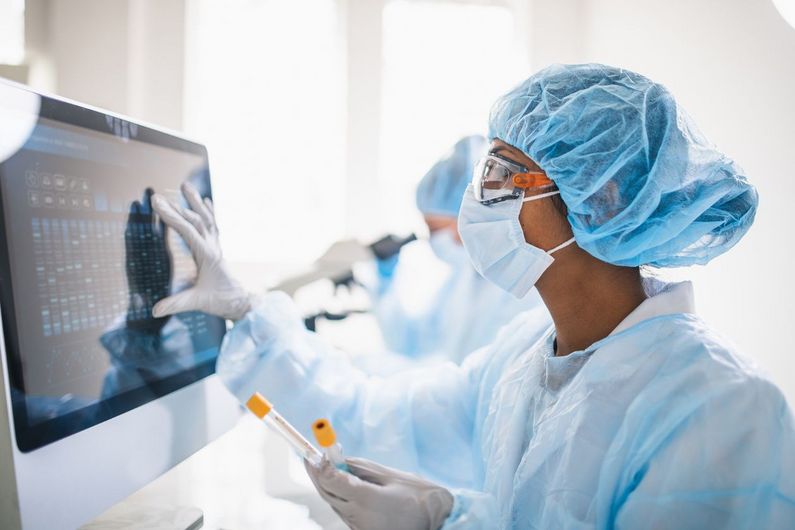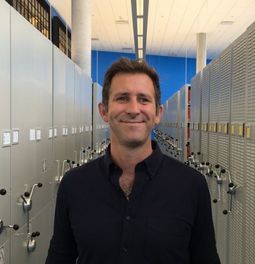Université de Montréal receives $40 million in funding for innovative projects
- UdeMNouvelles
05/06/2024

The COVID-19 pandemic highlighted the need for academic institutions, industry, non-profits, and government agencies to collaborate and establish a robust, agile ecosystem across Quebec, the Atlantic provinces, and Canada to respond effectively to future pandemics and emerging health crises.
Credit: GettyThe Eastern Canada Pandemic Preparedness Hub, led by Université de Montréal, has received nearly $100 million in funding from the federal government for four innovative projects.
Soraya Martinez Ferrada, Minister of Tourism and Minister responsible for the Economic Development Agency of Canada for the Regions of Quebec visited the Polytechnique Montréal campus at Université de Montréal (UdeM) today, on behalf of François-Philippe Champagne, Minister of Innovation, Science and Industry of Canada, to announce the results of Stage 2 of the Canada Biomedical Research Fund and Biosciences Research Infrastructure Fund grants, which will distribute over $575 million to Canadian institutions. The Eastern Canada Pandemic Preparedness Hub (ECaPPH), led by UdeM, was awarded nearly $100 million for four projects to be conducted by its member institutions in collaboration with industry and several other partners.
The COVID-19 pandemic highlighted the need for academic institutions, industry, non-profits, and government agencies to collaborate and establish a robust, agile ecosystem across Quebec, the Atlantic provinces, and Canada to respond effectively to future pandemics and emerging health crises. The objective of the ECaPPH, like that of the four other research hubs elsewhere in Canada, is to significantly increase the agility, connectivity and growth of the biomanufacturing and life sciences sector while also attending to monitoring, identification of new threats and adoption of possible solutions by the public so that Canada will be ready and better prepared to cope with pandemics and health crises in future.
The pandemic prompted an unprecedented mobilization of research teams worldwide. UdeM and its partners were no exception. Today's announcement concretely demonstrates how multidisciplinary teams can advance research further and accelerate discoveries for the community's benefit.— Daniel Jutras
Smart discovery of new antibiotics
The development of antibiotics is one of the greatest advances in modern medicine. But in recent decades, there has also been an alarming increase in bacterial resistance to antimicrobial drugs, making many antibiotics ineffective against previously treatable infections. In addition, misuse of antibiotics in both humans and animals has caused the emergence of new, antibiotic-resistant superbacteria, making the situation worse. This ”shadow pandemic” is contributing to the deaths of over 5 million people around the world every year—a number that could reach 10 million by 2050 if no action is taken.
These are the challenges addressed by a research project led by Yves Brun, professor in the Department of Microbiology, Infectiology and Immunology and researcher at the Centre for Biomedical Innovation in the Faculty of Medicine at UdeM. In this project, which has received $21 million in funding, Brun’s team and their partners will create new partnerships with researchers from various disciplines, including artificial intelligence, microbiology, pharmacology and chemistry, to develop a rapid-response platform that will accelerate the discovery of new antibiotics to fight drug-resistant bacteria and thus prevent potential pandemics.
The team’s main strategy will be to design new drugs in silico—in other words, using computer-assisted design, an opportunity created by the latest advances in artificial intelligence. The researchers also plan to use a unique approach in which they run a battery of cutting-edge microscopic, biochemical and pharmacological tests to validate and train the model for designing drugs in silico, so as to optimize its predictions continually.
POPCORN Collaborative Research Platform
Founded during the COVID-19 pandemic, the POPCORN platform is directed by Caroline Quach, a professor at UdeM and a microbiologist and infectiologist at the CHU Sainte-Justine teaching hospital. POPCORN brings together the scientific communities of Canada’s 16 pediatric hospitals and pediatric-research networks to foster a multidisciplinary approach to pediatric research. This “network of networks” has done tremendous work, but still faces challenges in its ability to respond to future pandemics in Canada. Obstacles that the second version of the POPCORN platform will overcome include the inability to rapidly conduct clinical tests in children and pregnant women, a lack of real-time data to inform policy decisions based on scientific evidence, and difficulty in capturing the complete trajectory of children’s illnesses.
Dr. Quach’s team of researchers has received $16 million in new funding. They plan to use their unique research structure to quickly identify and exhaustively analyze emerging infectious diseases in children and pregnant women so as to maximize the capacity and preparation needed to include these populations in clinical trials. By becoming a national centre for monitoring maternal and childhood diseases, and by facilitating collaboration between the public and private sectors, POPCORN will contribute significantly to Canada's Biomanufacturing and Life Sciences Strategy, thus accelerating the discovery and development of treatments and vaccines for vulnerable populations.
In its report, the review committee stated that the proposals from professors Brun and Quach, who are already collaborating, were strategically complementary for the monitoring and control of antibiotic-resistant bacteria—a positive point that tangibly demonstrates the cross-disciplinary nature of UdeM’s research teams.
Projects funded at Polytechnique Montréal and Université Laval
In addition to funding for the two projects led by researchers at UdeM, the Eastern Canada Pandemic Preparedness Hub has received funding for projects at two other research institutions. In one project, Gregory De Crescenzo, a professor in the Department of Chemical Engineering at Polytechnique Montréal, will conduct research on accelerated mass production of biomaterials in the context of health emergencies. His team has received close to $20 million to advance their research on this subject. In the other project, Université Laval professor Jérôme Estaquier has received $42 million to establish the infrastructure that will become the national Pandemic Preparedness Primatology Centre.
About the Eastern Canada Pandemic Preparedness Hub
The ECaPPH brings together 58 life-science partners in Quebec and Atlantic Canada under the leadership of Yves Joanette, Assistant Vice-Rector, Research, Discovery, Creation and Innovation at Université de Montréal. Université Laval and McGill University are co-leaders of the hub. Its partners include other universities and public agencies and numerous bioinnovation and biomanufacturing firms. In March 2023, five hubs were created across Canada to bring together stakeholders in the life sciences research and innovation ecosystem and build capacity to deal with future pandemics. The five Canadian research hubs work together in a complementary fashion to ensure that Canada is better prepared for future pandemics and health crises.
Media contact
-
Geneviève O'Meara
Université de Montréal
Tel: 514 709-4143















